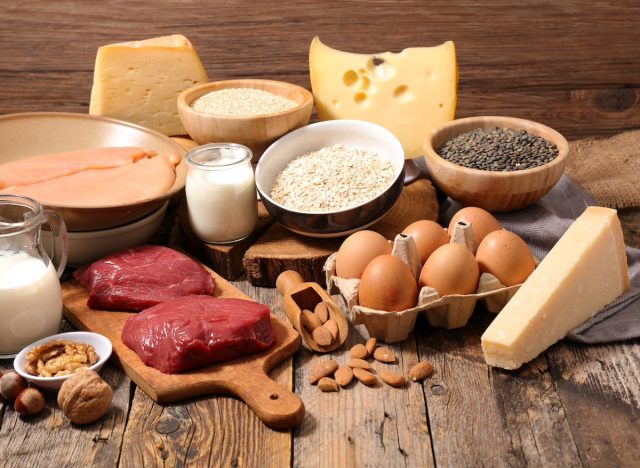How To Effectively Build Muscle As You Age

As you journey through life, the importance of building and preserving muscle becomes increasingly apparent. It acts as a defense against sarcopenia, the age-related decline in muscle mass, and empowers you to tackle daily activities with vigor and poise. Moreover, maintaining muscle mass supports essential bodily functions, such as metabolism and stamina, while fortifying your overall functional strength. That's why we're outlining the #1 best way to build muscle as you age.
The ability to cultivate muscle as you age is not merely a possibility—it's a pivotal aspect of aging gracefully. A potent blend of resistance training, recovery, nutrition, and hydration lays the foundation for achieving your fitness aspirations of building muscle mass, regardless of age.
Age is just a number when it comes to building muscle.

Prioritizing muscle building as you age is not just advisable—it's essential. Sarcopenia can be counteracted through deliberate efforts to maintain or increase muscle mass, such as performing regular resistance training or strength exercises. This proactive approach yields tangible benefits: improved functional strength, enhanced muscular endurance, better balance and stability, and a reduced risk of falls and fractures.
Ultimately, prioritizing muscle building enhances your overall quality of life. Though progress may be gradual, the undeniable benefits make the effort extremely worthwhile. In addition, don't overlook the importance of prioritizing recovery time—it's a crucial component of the muscle-building process.
The importance of building muscle as you age:

Building muscle has numerous benefits for your overall well-being. First and foremost, strong muscles provide better support for joints, bones, and connective tissues, reducing the risk of age-related conditions such as osteoporosis and arthritis.
In addition, boosting your muscle supply can help regulate blood sugar levels, improve metabolism, and support healthy weight management. Maintaining muscle mass is also associated with better cardiovascular health, reduced risk of chronic diseases such as diabetes and heart disease, and improved mental health and cognitive function.
Building muscle as you age is not just about looking and feeling stronger—it's about preserving mobility, function, and independence well into later life. Prioritizing muscle-building activities as part of a balanced exercise routine can profoundly affect your overall health and longevity.
Pairing resistance training with proper nutrition is the best way to build muscle in old age.

Building muscle at any age hinges on two fundamental pillars: resistance training and nutrition. Crafting a workout regimen that blends strength and hypertrophy routines is a potent strategy for sparking muscle growth and fortifying strength to tackle daily tasks easily. Maintaining a balanced diet abundant in protein, essential nutrients, and hydration is equally crucial, as it serves as the foundation for optimal recovery and enduring stamina.
Ensuring sufficient protein intake facilitates muscle growth and repair, especially as one ages. By prioritizing high-quality protein sources, individuals can effectively support their bodies' muscle-building endeavors. Consider shopping for some of the best high-protein foods on your next shopping trip, such as eggs, nuts, lentils, tuna, cottage cheese, non-fat Greek yogurt, quinoa, and chicken sausage.
Maintaining a balanced intake of essential nutrients, vitamins, and minerals and proper hydration is vital for sustaining overall health and functionality. This comprehensive approach to nutrition promotes muscle health and contributes to vitality, ensuring that individuals can thrive and remain active as they age.
- Source: Old muscle, new tricks: a clinician perspective on sarcopenia and where to next
- Source: Role of Skeletal Muscle in Insulin Resistance and Glucose Uptake
- Source: Resistance training is medicine: effects of strength training on health
- Source: Muscular Strength in Risk Factors for Cardiovascular Disease and Mortality: A Narrative Review
- Source: Muscle-strengthening activities and risk of cardiovascular disease, type 2 diabetes, cancer and mortality: A review of prospective cohort studies
- Source: Dietary Protein Distribution Positively Influences 24-h Muscle Protein Synthesis in Healthy Adults









